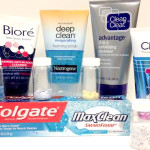
New York’s attorney general this week proposed what could become the nation’s first-ever ban on microbeads—the small plastic particles found in beauty and cosmetic products.
Eric T. Schneiderman introduced the Microbead-Free Waters Act to prohibit the sale of items that contain microbeads in an attempt to prevent an emerging threat to the Great Lakes. According to Schneiderman, the plastic beads have been found in “alarmingly high levels” in New York’s portion of Lake Erie.
Companies add microbeads to facial scrubs, cleansers and other products to help in skin exfoliation, but they can last in the environment for centuries, accumulating toxic chemicals on their surfaces while threatening public health and wildlife.
“When people learn more about this issue, they will be unwilling to sacrifice water quality just to continue to use products with plastic microbeads,” said Assembly Environmental Conservation Committee Chair Robert K. Sweeney, who accompanied Schneiderman during his announcement.
“I never met anyone who has wanted plastic on their face or in their fish.”

The 5 Gyres Institute played a role in the legislation’s proposal and already has plans to encourage other states to adopt it. The institute launched a study in 2013 that found high concentrations of small plastic microbeads in the lake that were able to evade sewage treatment. Along with organizations like The Plastic Soup Foundation and Flora and Fauna International, 5 Gyres tried to encourage the likes of Procter & Gamble, Johnson & Johnson and L’Oreal to phase out their use of microbeads. With little or no response from the producers of facial scrubs and other products, 5 Gyres decided to take the legislative route.
Now, Schneiderman, 5 Gyres and the other parties will await a decision from legislators in Albany.
“We have strived for decades to reclaim the Hudson River from its industrial, polluted past and we have a cleaner, healthier river as a result,” Riverkeeper President Paul Gallay said. “These plastic microbeads are an unnecessary and harmful product that do not belong in our waterways and should be phased out of use as quickly as possible.
“This proposed law would be a precedent-setting first step in achieving this goal.”
The Plastic Soup Foundation and 5 Gyres were among the organizations that worked on a smartphone app that allows people to find out if the products they consume contain microbeads.
“Plastic pollution is insidious—it doesn’t degrade like natural materials and persists for decades, if not centuries in our environment,” Sierra Club Atlantic Chapter Conservation Director Roger Downs said.
“New York Attorney General Eric Schneiderman has set the bar on holding the beauty products industry accountable, and we urge other states around [the] Great Lakes basin and across the country to follow New York’s leadership.”
Visit EcoWatch’s HEALTH page for more related news on this topic.


Leave a Reply
You must be logged in to post a comment.